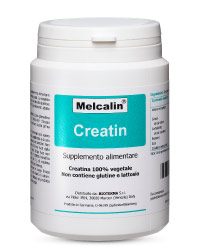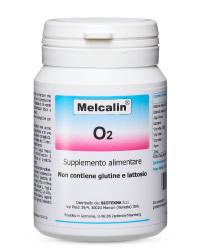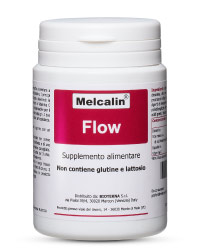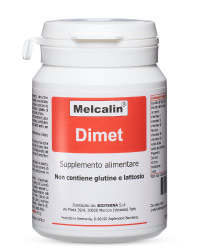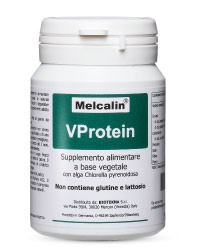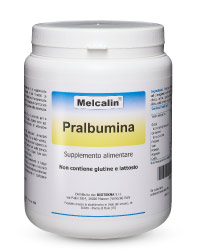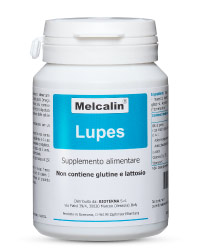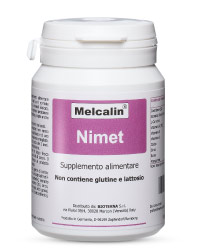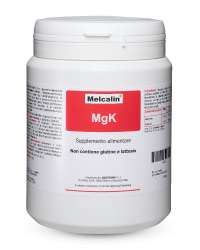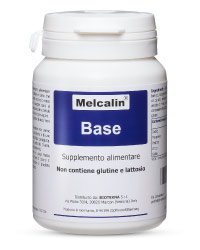Introduction
Supplementation in recent years is becoming an indispensable tool to ensure to our body all the nutrients it needs; the need to integrate the diet with appropriate supplements is supported by multiple reasons:
first of all, by the food quality (culture modern techniques have made it poorer in vitamins and minerals than those available in the past),
further aggravated by the fact that their consumption is usually done several days after the harvest and this reduces the nutritional quality.
Last but not least it should be remembered that, during the hot and humid periods, there has been a steady increase of cases of discomfort and disorders related to phenomena of alteration of hydroelectrolytic balance and, therefore, supplementation appears to be a preventive strategy.
Those listed are just a few examples of situations that predispose the body to run into shortages of essential nutrients, up to cause the onset of Medically Unexplained Symptoms(M.U.S.), such as tiredness and fatigue.Proper integration is therefore the best way to keep the body in good health.
Vitamins as well as minerals are essential for normal biological functions: the B vitamins are important for proper metabolism of carbohydrates, lipids, proteins and iron, vitamin C is a great antioxidant and is essential for the immune system, calcium is useful for neurotransmission, the process of cell division and to the bone tissue the chromium is indispensable for the maintenance of normal levels of glucose iron contributes to energy metabolism, to oxygen transport, to the reduction of tiredness and fatigue, potassium and magnesium are given for the maintenance of a good hydrosaline balance and are implicated in normal muscle, cardiac, neurological and gastrointestinal function.
Proper supplementation of vitamins and minerals can therefore be useful in different situations as in the case ofsalt and water imbalance, persistent fatigue, Medically Unexplained Symptoms, altered energy metabolism or alteration of the extracellular pH and chronic use of medications.
Hydrosaline balance
Water is the main constituent of our body (represents about 50-60% of body weight in an adult) (TBW-body hydration)1, plays crucial actions: allows the transport of nutrients across cell membranes, regulates the temperature, represents the means by which many biochemical reactions occur, it is also of fundamental importance for the cardiovascular function (regulates blood pressure) (ECW-extracellular water)1 and digestion.
The fluid and electrolyte balance changes constantly because the water is lost through breathing, perspiration and urine, is then introduced through liquids and foods (TBW-Turnover Turnover Total water)1. When water loss is not compensated by adequate intake of fluids is incurred in the dehydration and the whole body suffers the consequences 2,3. Dehydration can occur at any season of the year but is most at risk in the summer season when the fluid requirement increases because of a greater loss due to climate change.
Hence the importance of maintaining proper hydration and proper electrolyte balance. Integration with water alone often is not enough, because the sweat we also lose minerals, thus supplementing with magnesium and potassium is indicated to maintain an adequate budget hydrosaline (TBK-total potassium, ECK-extracellular potassium, TBMg- total magnesium, ratio K / Mg-ratio of potassium magnesium, total sodium-TbNa)1,4,10; potassium bicarbonate and sodium bicarbonate are also useful as they help to keep the acid-base balance of the extracellular environment (See acidosis Non Volatile, Volatile, Buffer systems – Bbuffer. Benefits with buffer supplementation Melcalin BASE www.portaledinu.it/press ).
Tiredness
The complex of vitamins and minerals is helpful to those who suffer from tiredness and fatigue: several studies have shown that patients with chronic fatigue syndrome have benefited from taking vitamin supplements. In particular, the intake of B vitamins has led to important benefits, confirmed by research that associate the lack of vitamin B12 increase in depressive symptoms and fatigue (M.U.S.). Other sources also indicate that supplementation with vitamin Cis able to improve the framework of these issues5.
The positive effects in relation to this symptomatology are also indirect, because the B vitamins, in particular B6 and B12, as well as vitamin Cand copper, have a positive effect in the metabolism of iron8,9,10.
Iron deficiency is in fact involved in that problematic: it was shown that it is able to influence the physical performance, immunity, thermoregulation and cognitive functions. Several studies have examined the relationship between iron deficiency and non-specific symptoms such as fatigue, weakness, headache, shortness of breath, dizziness and irritability, reporting improvements in symptoms after iron supplementation. To benefit, in particular, are not only those who have anaemia problems, but also the non-anaemic subjects who reported the same symptoms: there is strong evidence of women who complained of symptoms of tiredness and fatigue, while not being anaemic, they showed reduced iron stores. Iron deficiency affects many cellular systems including haemoglobin formation, DNA synthesis, the immune system and transport of electrons in the mitochondrial level6,7.
For the symptoms of fatigue, in addition, the effectiveness of Niacin and Ac.Pantotenico has been demonstrated10.
Energy metabolism
Vitamins play an essential role in reactions that affect the metabolism of proteins, lipids and carbohydrates (Tbprotein-total protein, Le-essential lipids, FM-fat mass, glycogen-Gly)1. The pantothenic acid, niacin and riboflavinare essential components of coenzymes which, themselves, are involved in the synthesis of fatty acids and in oxidation reactions. Other vitamins, such as vitamin B12, folic acid and vitamin C can affect lipid metabolism.
The B vitamins are essential for the metabolism of carbohydrates, in fact, they help to convert carbohydrates into energy (ATP)11; Moreover, among the B vitamins, vitamin B6 is essential for metabolism of proteins12,13 and niacin can be very effective in reducing LDL, the cholesterol and triglycerides and to increase HDL values. It has been found that its administration in combination with lipid-lowering medications (for example, bile acid sequestrants) reduced the incidence of cardiovascular events and slowed the progression of coronary lesions 14,15.
Also vitamin C has been shown to have positive effects on lipid metabolism: increased intake of vitamin C significantly decreases the cholesterol values in serum and promotes the transformation of cholesterol into bile acids16,17.
Among the minerals involved in the metabolism of carbohydrates there is zinc 23,24: several studies show the negative effect caused by a dietary deficiency of zinc on glucose utilization, further studies have shown that a deficiency in the diet during pregnancy affects the development of the foetus and the metabolism of carbohydrates.
A copper poor diet causes a reduced insulin response, therefore, the use of glucose by peripheral tissues, and the release of insulin can be affected18,19; cromo, chromium, finally, is an essential nutrient involved in both the carbohydrate metabolism and in that of lipids: the research in this field shows that chromium is able to improve insulin sensitivity and is effective in reducing blood lipids20,21,22. The results described emphasize what a good supplementation of vitamins and minerals may be necessary in the event of changes in metabolism.
Polipharmacy
It is known that the drug therapies, in addition to the desired therapeutic action, also involve the side effects that may be more or less serious depending on the drug or an eventual polypharmacy-therapy; what is often ignored or underestimated is that all drugs cause depletion of some important nutrients, thus depriving the body of essential vitamins and minerals and preparing the subject to the appearance of new symptoms.
Among the anti-inflammatory drugs we find non-steroidal anti-inflammatory drugs (NSAIDs), the use of which leads to depletion of folate and vitamin C and steroids that lead to the loss of vitamins D, E, folic acid and important minerals such as calcium, magnesium, potassium, zinc and selenium with a consequent osteopenia which can lead to osteoporosis, muscle spasms (cramps), sense of general weakness and irritability.
Among the lipid-lowering there are bile acid sequestrants (Cholestyramine, Colestipol) that lead to the depletion of vitamins A, E, D, K, folic acid, vitamin B12, calcium, iron, magnesium, zinc, while some reports also describe a reduction of omega-3 fatty acids (EPA + DHA).
Diuretics (whether thiazide, loop and potassium-sparing type) lead to significant losses of minerals: thiazide diuretics reduce calcium excretion slightly increasing plasma concentration, those loop can cause calcium loss with urine and consequent reduction in serum calcium. Both classes of diuretics can cause a depletion of magnesium and therefore enhance the probability of occurrence of tachyarrhythmias. For thiazide diuretics (hydrochlorothiazide, clopamide, Indapamide, etc.) the loss concerns magnesium, potassium, zinc and sodium while loop diuretics (furosemide Torasemide, Ac.Etacrinico, etc.), minerals and vitamins concerned are calcium, magnesium, potassium, zinc, vitamin C, B1, B6. Antidepressant drugs, especially tricyclic antidepressants (TCAs) (imipramine, clomipramine, desipramine, etc.) finally cause depletion of vitamin B2 and coenzyme Q10 25, 26 .
Melcalin Vita
Melcalin Vita groups together most of the vitamin complex of the B group, vitamins that are essential in the metabolism of carbohydrates, proteins and lipids; vitamin C, E and beta carotene are excellent antioxidants, also the vitamia C is important in lipid metabolism while copper and zinc are involved in carbohydrate metabolism. It should also be remembered that for proper functioning of the body proper hydration is essential; Melcalin Vita with his right amount of minerals such as potassium and magnesium is a supplement essential especially in summer when the demand for liquids and minerals increases. In addition to dehydration, the summer period can aggravate symptoms such as fatigue and tiredness, therefore, the intake of vitamins of the group B such as supplementation with vitamin C and copper are indicated not only because they are able, by itself, to reduce the symptoms of fatigue, but above all because they interfere in iron metabolism, whose deficiency is implicated in this problem.
Any drug therapy leads to a more or less variable loss of vitamin and / or mineral, which in turn expose the body to its deficiencies and the consequences that these bring.
Melcalin Vita is a complete supplement to be taken to maintain an optimal state of hydration and proper intake of essential vitamins and minerals to maintain a good state of health and well-being.
Melcalin Vita may also be use:
- in the physical recovery after exercise;
- to support a good mental performance;
- to maintain the appearance of the osseous system, the cartilage tissue and skin with vitamin C, calcium, magnesium and manganese;
- to strengthen the immune system;
- like adjunct in the maintenance of optimal pressure levels.



